Dogs, Cats, Goats, and...Foot Powder? Nonhuman Electoral Candidates Galore!
Have you ever heard of a goat mayor? How about a cat or a dog? What about...foot powder? This is by no means a comprehensive list, but nonetheless a solid sampling of some of the past and current electoral candidates who weren't or aren't exactly human.
Incitatus, the Roman consul horse
They say to never look a gift horse in the mouth, but what about a Roman consul horse?The Roman emperor Caligula ruled between 37-41 CE. It is said that he had a favorite horse, known by the name Incitatus. This horse was such a favorite that Caligula wanted to have him nominated for consul (an important political position at the time). Incitatus may not have made consul, but he did make out like a bandit otherwise: a marble stable, an ivory manger, purple blankets, and a collar encrusted with fine jewels were among the gifts lavished upon the horse. Cassius Dio, a prominent Roman historian who lived well after Caligula, even claimed that Incitatus was attended by servants and fed oats sprinkled with gold flakes. Incitatus would "invite" dignitaries and such folk to dine with him. There's another rumor that Incitatus was even made a priest.
However, those who recorded the history of all this lived well after Caligula. They may have written extravagant things about him to discredit him, motivated by then-contemporary politics. It is true, though, that Caligula was known to say provocative things. Some say that he was, by (possibly) nominating Incitatus for consul, implying that a horse could do the work that the senators did, and the lavish treatment of Incitatus was part of his jest. Either way, it makes a good story, and Incitatus was certainly not the last animal to be nominated for a political position.
 |
| Caligula and Incitatus dining with dignitaries. |
Boston Curtis, the mule committeeman
In 1938, a brown mule named Boston Curtis unanimously won a precinct seat in Milton, Washington. He'd signed all his documents with a hoofprint, didn't offer a platform, and didn't run an election campaign. There was just nobody else on the ballot, and most people didn't even know he wasn't human!
The mayor at the time, Kenneth Simmons, had nominated Boston and signed as a witness to his application documents to prove a point: people often didn't bother to research who they were voting for. This pointed to an inefficiency in the primary system, and his point was definitely proven.
 |
| Committeeman Boston Curtis |
Cacareco, the rhinoceros candidate
A young rhinoceros named Cacareco won an election in São Paulo, Brazil in 1959. She had 100,000 write-in ballots filled out in her favor after a campaign led by local students. Cacareco won one of the highest vote totals for a local election in the recent history of Brazil, as reported by The New York Times. The people of São Paulo decided that she would make a better candidate than the 540 humans in the running, most of which the citizens believed to be incompetent and/or corrupt. The closest human candidate had a bit over 10,000 votes.
The São Paulo zoo director asked the city to pay Cacreco's City Councilman salary, but her candidacy was rejected and thus null. Cacareco's candidacy may have been rejected, but to this day, a protest vote in Brazil is known as "Voto Cacareco," or "Cacareco Vote." Her legacy lives on.
 |
| Candidate Cacareco |
Pulvapies, the...foot powder mayor?
In 1967 Picoazá, Ecuador, a foot powder company submitted its product, Pulvapies, as a mayoral candidate. The company distributed leaflets that read "For Mayor: Honorable Pulvapies." The closest they came to a political stance was "Vote for any candidate, but if you want well-being and hygiene, vote for Pulvapies," as reported by Mental Floss.
It was just meant to be an advertising stunt, but the foot powder won the election with a clear majority of write-in ballots.
Unfortunately, no English-language news outlets followed up with this candidacy after the victory, so we don't quite know what happened with the foot powder mayor of Picoazá. Presumably, well-being and hygiene were great amongst the Picoazán populace during Mayor Pulvapies' term.
 |
| Mayor Pulvapies |
Clay Henry and son (and grandson), the Goat Mayors
In 1980's Lajitas, Texas, a human from out of town was declared the first mayor. A local farmer took issue with that. He decided that if this guy from out of town could be mayor, so could his goat, Clay Henry. Political campaigns ensued. Clay Henry may have lost the first election, but he won the second "by a landslide". People clearly preferred someone from Lajitas to represent them. Even if that someone was a goat.
As mayor, Clay Henry was known to enjoy the occasional alcoholic beverage, and by occasional we mean "frequent". Tourists visited Lajitas to buy drinks for Clay Henry, the famous goat mayor. Clay Henry's son (Clay Henry II) and then grandson (Clay Henry III) became his successors, and currently the office is vacant.
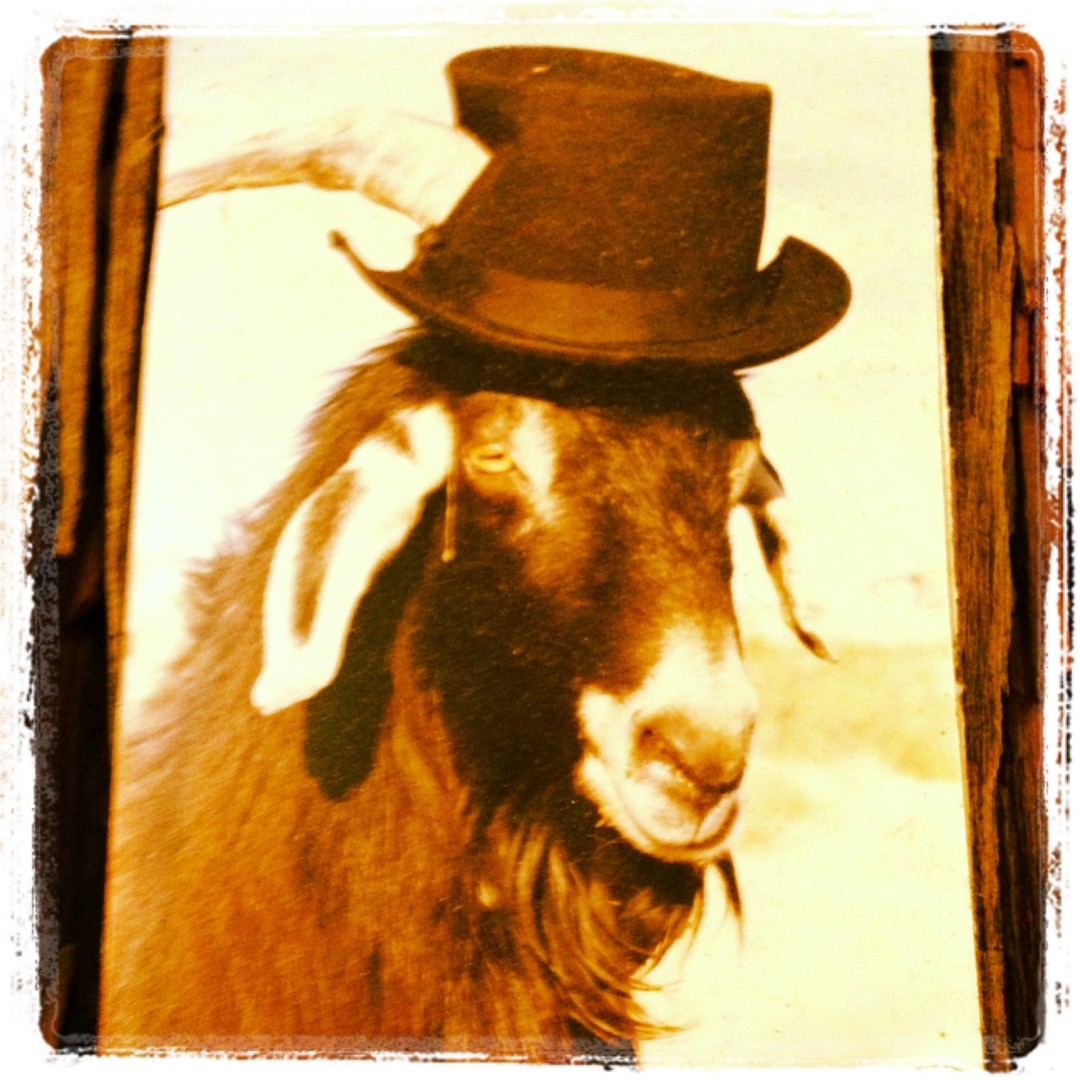 |
| Mayor Clay Henry |
Bosco, the first American dog mayor
The first American canine mayor was named Bosco, and he was elected mayor of Sunol, California, in 1981. He'd already been the town mascot before he became the mayor. He was known to hang out in front of the local bar, asking for treats from passersby and bar patrons. Bosco was kindly, and walked the more inebriated patrons of the bar alongside the railroad tracks to sober up.
Once elected, Bosco led Halloween parades and other community events in his fine tuxedo, according to Roadside America. He fathered many a pup in Sunol, possibly in a bid to increase his constituency. Bosco kept his office until his death in 1994. In 2008, a statue of Bosco wearing his usual bandana was unveiled next to the Sunol post office.
 |
| Mayor Bosco |
Goofy Borneman, the dog mayor who began a tradition
In 1988, Rabbit Hash, Kentucky, elected their first mayor a dog named Goofy Borneman. All the elected mayors of the 3.5-acre town have been dogs, as reported by CNN. The most recent mayor is a French bulldog named Wilbur Beast, elected at just six months of age. Wilbur won over the incumbent Brynneth Pawltro, a pit bull who won the 2016 race. The town's ambassador is Lady Stone, a border collie.
The mayoral election of Rabbit Hash is actually a fundraiser, each ballot costing $1, in order to maintain Rabbit Hash. You don't even have to be from Rabbit Hash to vote you could vote from anywhere in the world. However, the mayor has to live within an hour's walking distance of Rabbit Hash, which can arguably be very different for different animals. The tradition of a canine mayor in Rabbit Hash has been going strong for years and shows no signs of stopping.
 |
| Mayor Wilbur |
Stubbs, the Alaskan cat mayor
In Talkeetna, Alaska, a cat named Stubbs served as mayor for 20 years, as reported by Business Insider and CNN. He was elected in 1997. His office was located at Nagley's Store, where locals and tourists called upon him for advice.
Stubbs was a bit of an eccentric mayor. He was known to only drink water from a wineglass with catnip in it, and showed up at local businesses at random. Stubbs was known to sleep on the job, but the places he frequented only had cat hair to complain about "He doesn't interfere with business. He's honest," said local manager of Nagley's General Store, Lauri Stec.
Though there are many dogs in Talkeetna, they almost never messed with Stubbs. However, in 2013, the mayor suffered an attack from a local dog. Stubbs recovered in the hospital and was able to continue serving his community afterwards. He didn't let the attack slow him down, and Stubbs was even featured as a write-in candidate for the 2014 U.S. Senate race.
Stubbs began retreating from public life in 2015, his old age wearing on his capacity for the constant flow of visitors. He was on a couple of TV shows and interviewed many times, but he was not fond of the camera as he aged. His successor, Denali, was a good friend of his, and currently presides over Talkeetna.
| Mayor Stubbs |
Maximus Mighty-Dog Mueller and the Spares, golden retriever mayors
In Idyllwild, California, a golden retriever named Maximus Mighty-Dog Mueller was elected as mayor. The local animal rescue non-profit organization, Idyllwild Animal Friends Rescue, ran the election as a fundraiser. Locals could nominate their pets to run for mayor. Max ran in the 2012 race against 2 cats and 13 other dogs. He won with 2/3 of the votes and became the first mayor of Idyllwild. He was extremely popular with his constituents. Max passed away in the spring of 2013. A stuffed toy replica of Max served as interim mayor before a descendent of Maximus came in to finish out the term.
Maximus Might-Dog Mueller II arrived in Idyllwild the summer of 2013, accompanied by two deputy mayors: Mikey Mighty-Dog Mueller and Mitzi Marie Mueller. They are colloquially referred to as "the Mayor and the spares" or "the Mayors of Idyllwild", and they are actually all related to one another and to Max I through a common ancestor. As Max II's 2014 term was coming to an end, the people of Idyllwild decided to re-elect Max II, but this time, for a lifelong term. Mayor Max II passed away in the summer of 2022.
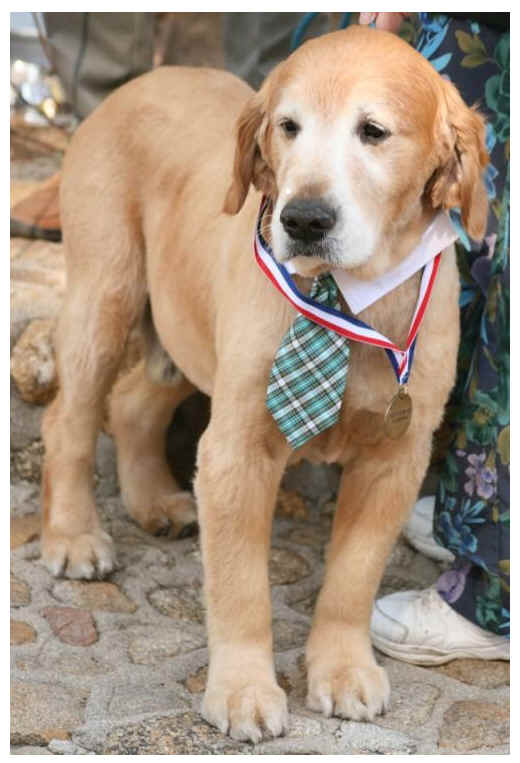 |
| Mayor Max I |
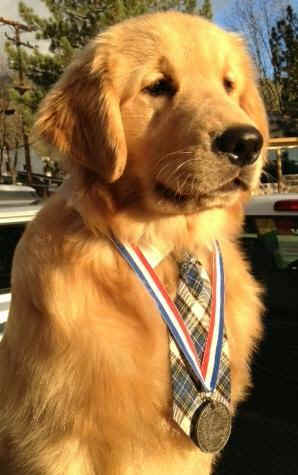 |
| Mayor Max II |
Duke the Dog, the Great Pyrenees mayor
In 2014, Duke The Dog became the mayor of Cormorant, Minnesota. The first half of his life he spent living on a farm, but the Great Pyrenees was already a bit of a local celebrity when Cormorant decided to hold an election to raise some money for the community. Similarly to Idyllwild and Rabbit Hash, they charged $1 a ballot, and Duke won by quite a large margin. He wore a signature top hat and made national and international news, as reported by the AKC and NPR.
Duke didn't let the fame get to his head, though. He loved playing with local children and receiving copious amounts of pets from them. During parades, he'd sit on the back of a red convertible holding his head high. He served four one-year terms (28 dog years), and then he retired. The village wrote a song for him when he left office, and he passed in 2019 at the ripe old age of 13.
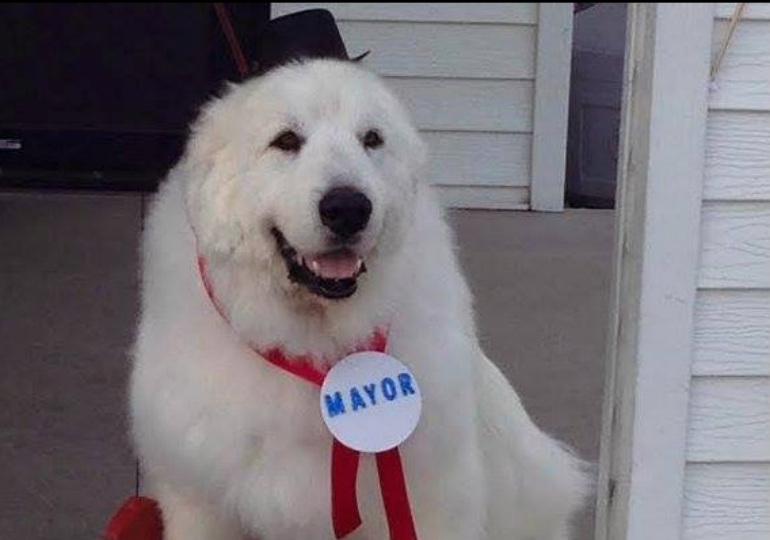 |
| Mayor Duke |
Rosie Disch, the yellow lab mayor (and others)
In Omena, Michigan, the 2021 mayoral seat went to a yellow lab named Rosie Disch. Similarly to a few of the communities mentioned above, the elections in Omena are for raising money for the town--in this case, the money from each $1 vote goes to the Omena Historical Society. The 1st vice-mayor is a chicken named Penny Labriola, the 2nd vice-mayor is a cat named Sweet Tart McKee, the press secretary is an angora goat named Sandra O'Day Jones, and the international campaign manager is a chihuahua named Chip Goldman.The Right Honorable Mayor Rosie Disch ran on a campaign of loyalty, peace, supporting the local farmers' marker, and a reputation for being social with the township.
Many of the animals elected in 2021 are experienced in politics--Sweet Tart, for example, was on the Omena Village council from 2012-2015, and was the mayor from 2018-2021. Penny Labriola was the Special Assistant for Fowl Affairs from 2018-2021.
The elected all have a term of 3 years before the next election comes around, when people are encouraged to "Vote Early and Vote Often" and even practice "ballot stuffing", but it's all in good fun--after all, the money is going to maintaining an important part of the township.
 |
| Mayor Rosie Disch |
Elsa, the baby goat mayor
In Fair Haven, Vermont, the pet elections are used to fundraise money for various town improvements--in 2020, a Cavalier King Charles Spaniel named Murfee was elected, and the money was used to replace the local elementary school's playground equipment. In Murfee's 2021 term, he raised money to build a dog park, according to CNN.The latest mayor is a baby goat named Elsa, reported by WCAX. There's no age requirement for voting in the Fair Haven election, and children are actively encouraged to participate in the electoral process. There's a $5 registration fee for pet owners to nominate their animals as potential candidates.
 |
| Mayor Elsa |
Conclusion
There are more animal candidates than the average person might expect, stretching all the way back from the Roman empire to today. Who's to say exactly why humans keep nominating animals to lead them? Sometimes, it's a protest. Sometimes, a gesture of the goodwilled nature of a small community.
Whatever the reason, these animals offer a perspective unique from that of human candidates, and they can give us all something to think about. If you want to have a say in your community, make sure to vote in your local elections no matter if your mayor is a horse, a goat, a dog, or a human.



Comments
Post a Comment